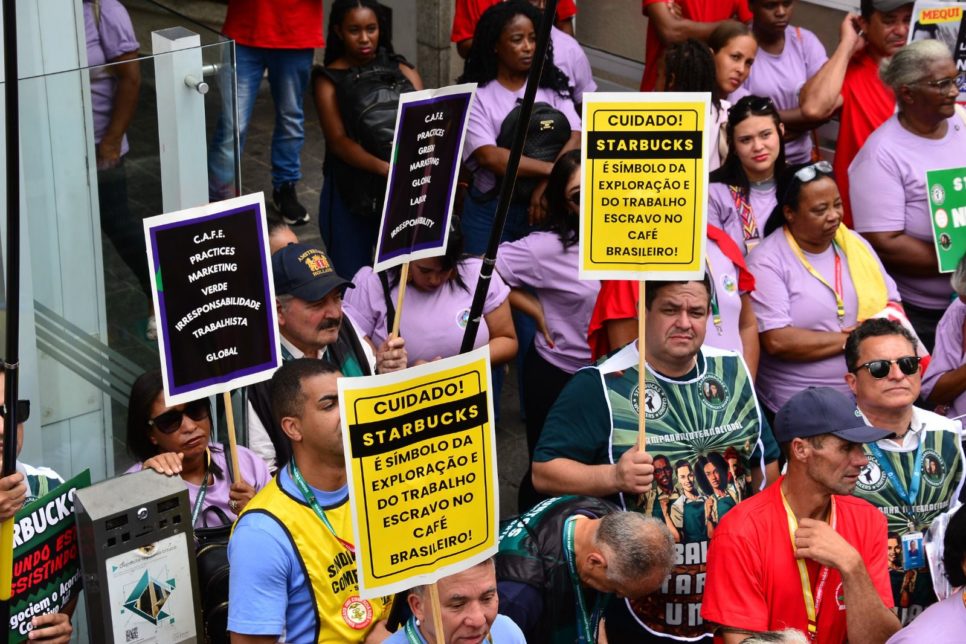Assault on indigenous rights
Organizations denounce in UN government violations against indigenous peoples
 Brasília - Indígenas fazem protesto contra a PEC 215 na Praça dos Três Poderes (Marcelo Camargo/Agência Brasil)
Brasília - Indígenas fazem protesto contra a PEC 215 na Praça dos Três Poderes (Marcelo Camargo/Agência Brasil)
The government of President Michel Temer has been systematically working against the rights of indigenous peoples and their traditional lands. One of the most controversial issues right now is the so-called “marco temporal”, or cut-off date, which states that indigenous peoples who were not occupying their traditional lands when the Brazilian Constitution was promulgated in 1988 will lose the right to their territory. In addition, indigenous groups that were removed from their lands will also not have the right to review the demarcation of their territories.
Given this situation of recurring violations, 48 organizations sent a document to the UN and to the IACHR denouncing a series of legal setbacks committed in recent months, such as the reduction of conservation areas and the alteration of land reform programs.
According to the statement, the government has failed to comply with the commitments made before the UN Human Rights Council and after the visit to Brazil last year by the Special Rapporteur on the Rights of Indigenous Peoples, Victoria Tauli-Corpuz. Moreover, the government has not applied the recommendations made by United Nations Member States at the Universal Periodic Review and neither has it followed the suggestions proposed by Tauli-Corpuz in her report.
“In order to benefit sectors associated with agribusiness, the government has fallen back on an outdated agenda of assimilation of indigenous and traditional peoples, violating the right of these groups to self-determination. There is no channel for dialogue and the demands of these peoples are routinely ignored by the current administration. The weakening of Funai [the government agency for indigenous affairs] and the dismantling of conservation areas are alarming examples of the complete lack of consideration for indigenous peoples,” explained Caio Borges, coordinator of Business and Human Rights.
Read more
Another issue of concern is Bill 8107/2017, proposed by the government following the complete veto of Provisional Executive Order (MP) 756 and the partial veto of MP 758, which both reduced the size of conservation areas. The bill intends to shrink the Jamanxim National Forest, in the state of Pará, by 350,000 hectares.
On August 16, the Supreme Court will judge three cases - on the Xingu Indigenous Park (in the state of Mato Grosso), the Ventarra Indigenous Land (in the state of Rio Grande do Sul) and the indigenous lands of the Nambikwara and Pareci peoples. The decision of the court will have a direct impact on the demarcation of indigenous land in the country.
In July, President Michel Temer approved a legal opinion issued by the Attorney General’s Office that recommends the application of the conditions used in 2009 in the process to demarcate the Raposa Serra do Sol Indigenous Land, in the state of Roraima, for the demarcation of all indigenous lands in the country. These conditions, however, are specific to the Roraima case and when applied to other contexts they severely restrict the rights of indigenous peoples.
This same legal opinion also institutionalizes the “marco temporal” and was the target of condemnation by civil society organizations at the time of its release. In the document sent recently to the UN, the organizations stated that “the opinion of the AGU endorsed by President Temer diminishes constitutional rights for indigenous peoples as if it were a legislative act, passed without any kind of dialogue or transparency and without the right to free, prior and informed consultation”.
Against this backdrop, civil society organizations that work to advance indigenous causes are preparing a series of resistance activities for the month of August, with the goal of halting the successive violations of indigenous rights in Brazil.






